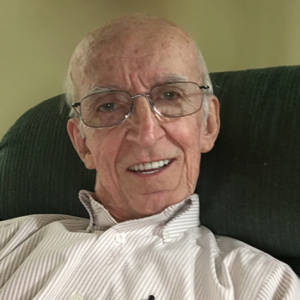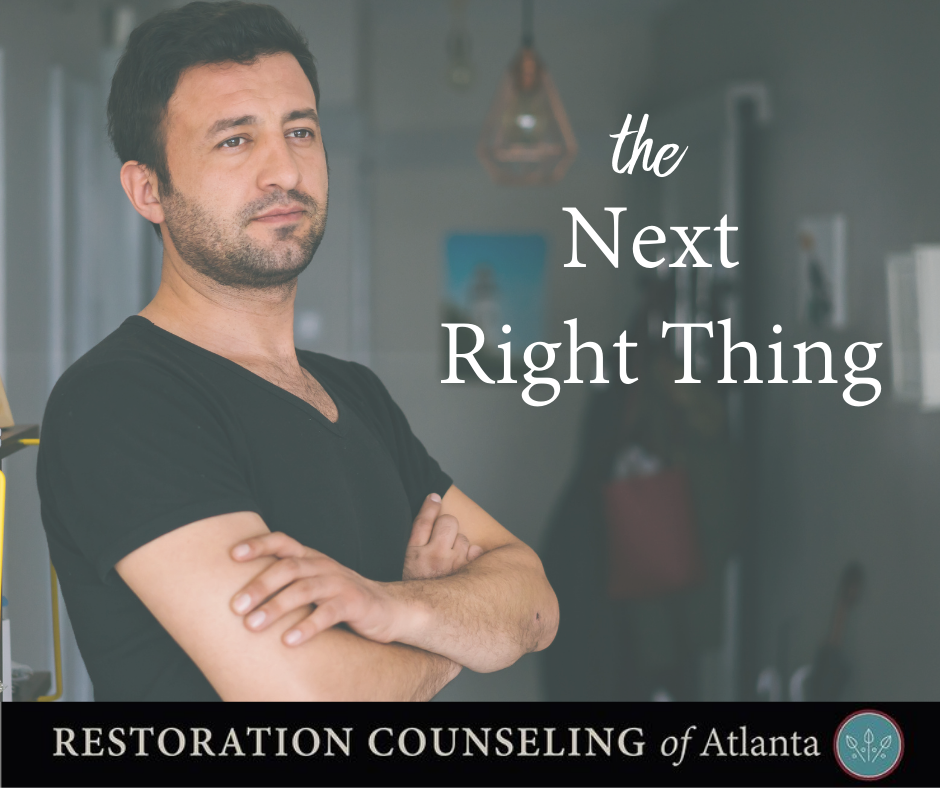The other day in a session with an alcoholic client, we got to talking about the will of God, and I posed this question: if you got a person-to-person phone call from God this morning with instructions for the day, what would they be? After we indulged our grandiosity a while with ideas like getting out there and changing the world for Jesus, something less spectacular came to mind.
Feel safe.
Be happy.
Do the next right thing.
A familiar faraway look came over my visitor, and I knew he had gone to the place alcoholics go when thoughts about safety or happiness come to mind. Because not feeling safe and being unhappy are what brought him to counseling, his mind could not even begin to consider the next right thing.
The place he had gone was the part of his brain where everything he ever learned is stored with nothing to separate what is true from what is untrue. There amid the clutter lies the false belief that any unpleasant feeling is a problem, and getting rid of the feeling solves it. Long ago, when my friend discovered alcohol, it made him feel safe and happy. Based on the false belief as stated, he had solved his problems (until the alcohol wore off, that is.)
We may think surely our friend would have learned by now that the problem is not just the way he feels and there is something causing the feeling that the alcohol has not touched. Not if he is an alcoholic. His learning process has been so powerfully affected by the alcohol that relief from discomfort has taken precedence over the next right thing. The only thing the brain has learned or cares about is getting rid of the pain, and the quicker, the better.
Here I wish to make an important point. You are not your brain. Your brain is approximately three pounds of tissue that receives and processes information from the environment and is prone to dysfunction. You, on the other hand, are a spiritual being created in the image of God designed to do the next right thing. This accounts for the apostle Paul’s observation. I do not do what I want, but I do the thing I hate.
Now, back to our visitor with the faraway look seated across from me on the small sofa. I know that if I do not address that look and what lies beneath it, there is a chance that a week from now in our next session, he will confess that on the way home, he stopped for gas at Quik Trip, and while he was inside, he bought a six-pack and drank the whole thing in the car before going home. His answer as to why will be that he doesn’t know why. When I press him further, he may mention a report his boss had him write, and he had turned in that morning. He may say he was worried the boss would not like the report. At that point, but a week too late, we will know that the far-away look had taken him to the place in his brain where he hides his fear of authority. Next, his alcoholic brain took him to a place where he worries and feels bad. The next stop was Quik Trip, even though the tank was three-quarters full. He explained how it is safe to keep the tank topped off. It’s pretty clear his brain was running the show.
If we retrace our steps, it appears that talk of doing the right things triggered the client’s need to do things right which led to unpleasant worry and feeling unsafe which prevented him from clearly seeing the next right thing. At that point, the brain went on automatic pilot and steered a course based on the premise that his discomfort was his problem and alcohol was the solution.
So much for how the relapse occurred. Now, what can we do to prevent it?
- If you’re a counselor, pay attention to the faraway look and address it.
- If you’re in recovery, start by making a list of things that are never the next right thing.
That list should definitely include drinking, isolating, ruminating, and shutting down. These should be things you never do at all; far less do next.
A second list of the next right things might include go to a meeting or call your sponsor. This list has endless possibilities so long as what you choose to do next doesn’t allow you to isolate, ruminate, or deny your feelings. Anytime it seems you have nothing to do, check this list. Chances are anything on it will be the next right thing.
 Written by: Patrick Caffrey, LPC
Written by: Patrick Caffrey, LPC
pat@restorationcounselingatl.com, ext. 114
Patrick Caffrey, LPC, is a therapist at Restoration Counseling of Atlanta in Roswell, Georgia, where he counsels adults who struggle with alcoholism and other forms of substance abuse, as well as related family issues. These include adult children of alcoholics (ACOA) and persons who are codependent. Pat has also written and published three books addressing the subject of addiction. His books are available through www.amazon.com or may be purchased at the Roswell office.

